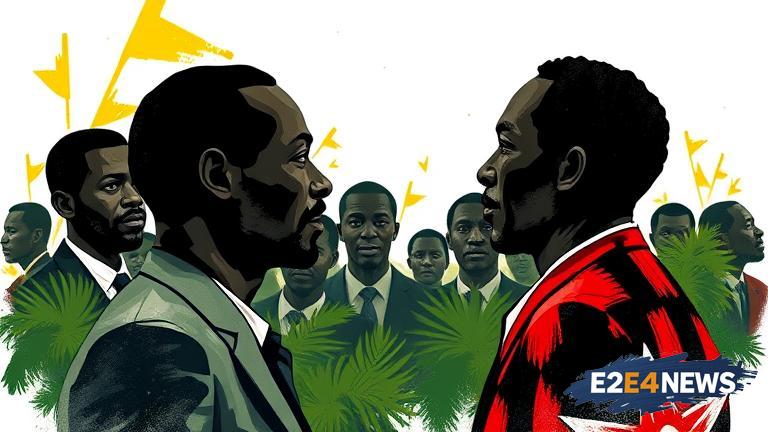The Congolese diaspora community has come out strongly to condemn Kenya’s nomination of William Goma as the new head of the East African Community’s Legislative Assembly. This move has been met with widespread criticism and outrage from the Congolese community, who feel that Goma’s nomination is a betrayal of their trust and an insult to their nation. The community has expressed deep disappointment and frustration with the Kenyan government’s decision, citing Goma’s questionable past and his alleged involvement in corrupt activities. Many have taken to social media to express their discontent, using hashtags such as #NotMyGoma and #CongoDeservesBetter to voice their opposition. The Congolese diaspora has also called on the Kenyan government to reconsider its decision and nominate a more suitable candidate. They argue that Goma’s nomination undermines the integrity and credibility of the East African Community and its institutions. Furthermore, the community has expressed concerns about Goma’s ability to effectively represent the interests of the Congolese people and promote the values of democracy, transparency, and accountability. The nomination has also sparked a heated debate about the role of the diaspora community in shaping the political and economic agenda of their countries of origin. Many have argued that the diaspora community has a critical role to play in promoting good governance, human rights, and the rule of law in their countries of origin. Others have pointed out that the diaspora community has a unique perspective and expertise that can be leveraged to promote economic development, social justice, and cultural exchange. The controversy surrounding Goma’s nomination has also highlighted the need for greater transparency and accountability in the nomination process. The Congolese diaspora has called on the East African Community to establish clear criteria and guidelines for the nomination of candidates to key positions. They argue that this will help to prevent the nomination of unsuitable candidates and ensure that the interests of the people are represented. In addition, the community has emphasized the need for greater consultation and engagement with the diaspora community in the decision-making process. This, they argue, will help to build trust and confidence in the institutions of the East African Community and promote a sense of ownership and belonging among the people. The Congolese diaspora has also called on the international community to take notice of the controversy surrounding Goma’s nomination and to support their efforts to promote good governance and human rights in the region. They argue that the international community has a critical role to play in promoting democracy, stability, and prosperity in the region. The nomination of Goma has also sparked a wider debate about the future of the East African Community and its role in promoting regional integration and cooperation. Many have argued that the community needs to be more proactive in promoting economic development, social justice, and cultural exchange among its member states. Others have pointed out that the community needs to be more effective in addressing the challenges facing the region, including poverty, inequality, and climate change. The controversy surrounding Goma’s nomination has also highlighted the need for greater leadership and vision in the East African Community. The Congolese diaspora has called on the leaders of the community to provide bold and visionary leadership that can inspire confidence and trust among the people. They argue that this will help to promote a sense of unity and purpose among the people and ensure that the community is able to achieve its goals and objectives. In conclusion, the nomination of William Goma as the new head of the East African Community’s Legislative Assembly has sparked widespread controversy and outrage among the Congolese diaspora community. The community has expressed deep disappointment and frustration with the Kenyan government’s decision, citing Goma’s questionable past and his alleged involvement in corrupt activities. The controversy has highlighted the need for greater transparency and accountability in the nomination process, as well as the need for greater consultation and engagement with the diaspora community in the decision-making process.
